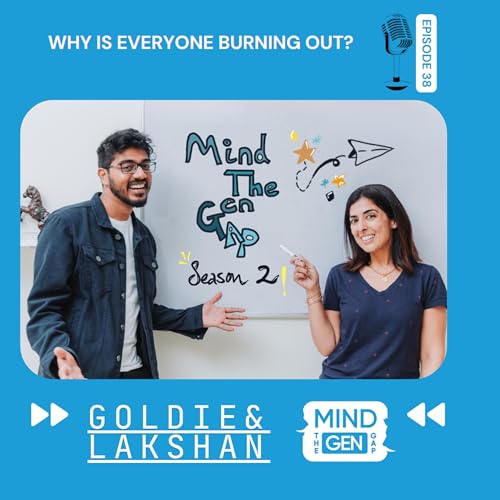
Why is everyone burning out? | Ep. 38
カートのアイテムが多すぎます
カートに追加できませんでした。
ウィッシュリストに追加できませんでした。
ほしい物リストの削除に失敗しました。
ポッドキャストのフォローに失敗しました
ポッドキャストのフォロー解除に失敗しました
-
ナレーター:
-
著者:
このコンテンツについて
Topic: Understanding Burnout Across Generations
Burnout is no longer a late-career issue.
It’s now showing up younger and faster—even in teens.Not a sign of weakness—the meaning and context of burnout have evolved with the times.
Boomers (50s–60s):
Burnout from decades of overwork, lack of emotional support, no "pause" culture.
Often shows up as physical health issues later in life.
Gen X (40s):
The "invisible" generation, raised on self-reliance and silence.
Burnout is quiet, often hidden, and compounded by responsibility overload.
Millennials (Late 20s–30s):
Sold a life script that collapsed post-2008 crisis.
Burnout shows up as existential fatigue and dissatisfaction with life's progress.
Gen Z (Teens–Early 20s):
Burnt out before careers even begin—from chronic uncertainty, information overload, and comparison culture.
Shows up as disengagement, quiet quitting, or a baseline of exhaustion.
Unfair treatment at work
Unmanageable workload
Unclear communication
Lack of manager support
Unreasonable time pressure
Burnout is systemic, but small personal shifts help:
Rediscover meaning in life (career, community, health, etc.)
Make micro-adjustments: say no, reconnect with friends, seek mentorship.
Self-awareness is key: know your personality & burnout patterns.
Use self-compassion—start small, allow space to pause and reflect.
Tailor solutions to your generation & individual context.
“Burnout isn't just from doing too much—it's from doing too much of what no longer matters.”



